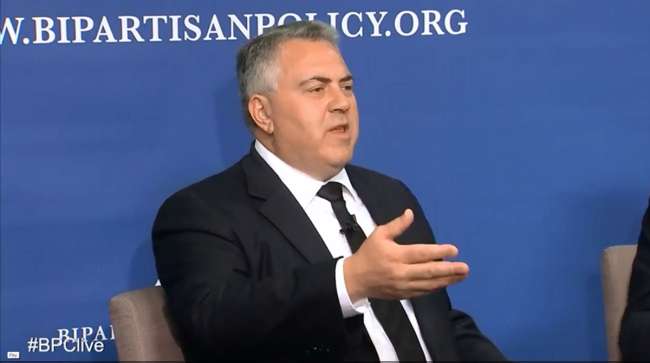Senior Reporter
Australian Ambassador Tells Lawmakers to Consider Infrastructure Privatization

WASHINGTON — With many American policymakers struggling to identify a long-term path for funding their big-ticket infrastructure projects, Australia’s ambassador to the United States has proposed a rather simple approach: privatize the projects.
Ambassador Joe Hockey’s argument, while not new, is that if consumers already trust the private sector with manufacturing their foods, cars and homes, they should as easily trust similar entities with their modes of transportation, instead of the government. These intermodal systems include airports, seaports and roadways, a significant number of which are owned and operated primarily by U.S. state and local governments.
In Australia, a modern, well-functioning infrastructure was seen as a pillar for ensuring economic prosperity, so officials there approved the privatization of key aspects of their transportation grid, Hockey explained at the Bipartisan Policy Center during Infrastructure Week.
Providing innovative solutions to the infrastructure backlog is the only way to get things done. - @JoeHockey #BPCLive #InfrastructureWeek #TimeToBuild pic.twitter.com/70MkOCMNM8
— Bipartisan Policy (@BPC_Bipartisan) May 16, 2018
“If you don’t actually get the infrastructure built, you’re going to start to fall behind,” Hockey said. “Providing innovative solutions to the infrastructure backlog is the only way you are going to get things built.”
Australia’s private sector approach to infrastructure has been closely reviewed by top Trump administration officials who crafted President Donald Trump’s 10-year, $1.5 trillion infrastructure proposal. The plan would rely primarily on private sector funds and would use $200 billion from federal funds as a way of incentivizing private investments. Most Democrats and certain Republicans from rural districts, however, pushed back on the White House proposal. Handing over roadways and bridges to private investors as part of public-private partnerships (P3) would be anathema to the country’s handling of its infrastructure dating back to the establishment of the Eisenhower-era interstate system.
Amid the congressional pushback, the White House’s plan is unlikely to advance this year, White House press secretary Sarah Sanders acknowledged.
Notwithstanding concerns raised about private sector involvement, Hockey encouraged Washington lawmakers not to be deterred. If constituents realize the benefits of an efficient transportation network for a reasonable cost they would ultimately reward the political class, he argued.
“The voters come with you, as long as they can see that you’re not wasting the money; as long as they can see that the asset is not going to go away; as long as they can see that they’re going to benefit,” Hockey said.
In a typical P3 project, investors set up tolls to capitalize on their project by charging for access. Requisite traffic volume for a P3 is not ideal along rural corridors.
Organized by the U.S. Chamber of Commerce, Infrastructure Week aims to raise awareness about the country’s stretches of inefficient infrastructure.

